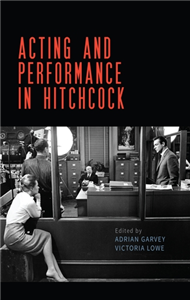The changing spaces of television acting
From studio realism to location realism in BBC television drama
by Richard Hewett
This title is an historical overview and a then-and-now comparison of performing for British television drama. By examining changing acting styles from distinct eras of television production - studio realism and location realism - it makes a unique contribution to both television and performance studies, unpacking the various determinants that have combined to influence how performers work in the medium. Comparing the original versions of The Quatermass Experiment (BBC, 1953), Doctor Who (BBC, 1963-89) and Survivors (BBC, 1975-77) with their respective modern-day re-makes, the book unpacks the developments that have resulted from the shift from multi-camera studio to single camera location production. Textual analysis is combined with extensive archive research into production process and reception, alongside interviews with numerous actors and production personnel from more than sixty years of television production.











